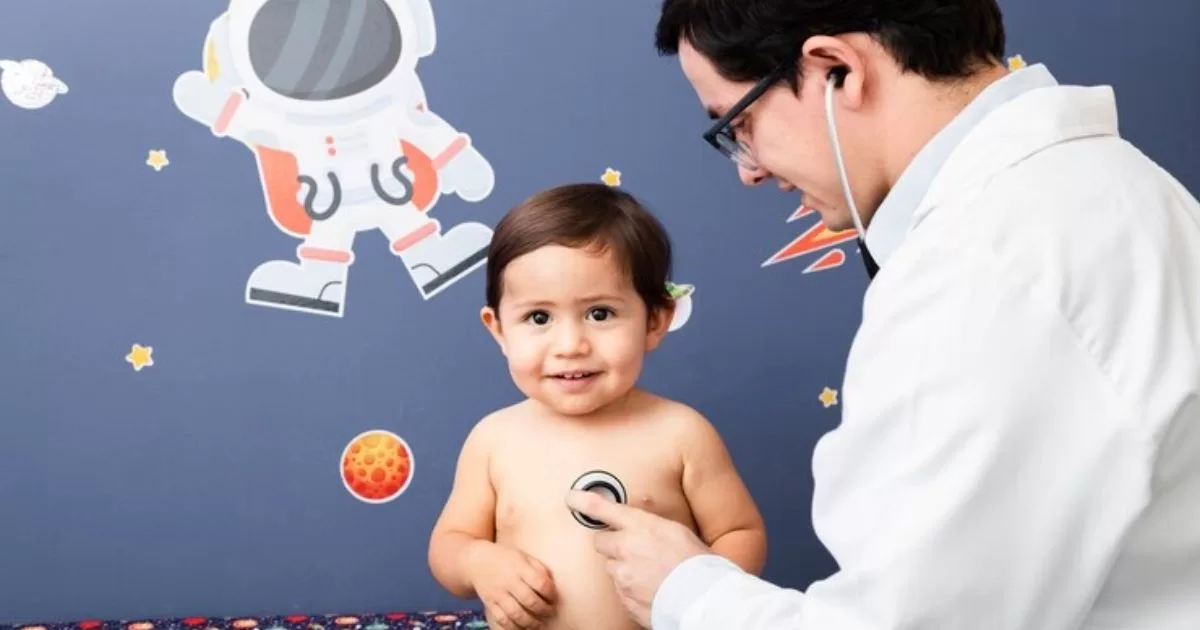MIAMI.- In this accelerated technological race, pediatricians stand on the podium to be recognized for their victory over Artificial Intelligence (AI) because it has low precision in children’s diagnoses. Although researchers see this as an opportunity for improvements so that in the immediate future a machine can keep up with or surpass the doctor. But for now these specialists take all the medals.
A JAMA Pediatrics study notes that the use of artificial intelligence chatbots, such as ChatGPT, to diagnose medical conditions in children is unreliable.
The research showed that this AI system is only 17% correct in the diagnosis of childhood diseases, a considerably low figure.
The study shows that the experience of pediatricians remains irreplaceable and highlights the importance of their clinical knowledge. Despite this, many healthcare specialists recognize that the integration of AI into healthcare is likely imminent.
Artificial intelligence (AI) is evolving rapidly and the technologies driven by it will likely transform pediatric health care, believes JAMA Pediatrics.
“AI can support accurate and efficient interpretation of chest x-ray and retinal images1 and will likely improve diagnosis, risk prediction, and treatment selection in the future. “Rapid advances in the capabilities of chatbots powered by large language models (LLMs), such as ChatGPT, could democratize medical knowledge and inform treatment decisions,” the research reveals.
AI in the health sector
Artificial intelligence in the health sector is advancing rapidly and is used for a wide range of applications, but the researchers highlighted that the system’s responses are often too general, failing in specific cases of pediatric diseases.
Even the newest version is not yet ready to diagnose children’s diseases. They are different from adults because they change a lot with age and they can’t even say well what is happening to them. ChatGPT is one of the most capable AIs tested in recent times, being able to respond to anything asked of it and do many things asked of it.
The failed AI
In the experiment, the scientists used the texts of 100 real children’s health cases and asked the system to try to tell what illness they had. Two specialist doctors then saw if the artificial intelligence’s responses were good, bad or so-so.
Sometimes ChatGPT would say a disease I had to see, but it wasn’t the right one because it was very general. For example, the machine thought that a child had some type of lump in his neck, but in reality he had a genetic disease that also affects the ears and kidneys, and that can cause these lumps to appear.
Of the 100 cases, the AI got only 17 right.
Of the 100 cases they tested, ChatGPT only got 17 right. He did not find the complete answer in 11 casesand he was completely wrong on 72. Furthermore, of the 83 times he was wrong, on 47 occasions the illness he said had to do with the correct body part, but the diagnosis was still wrong.
The researchers noticed that AI wasn’t very good at realizing things that experienced doctors do know.. For example, it didn’t connect that a child with autism could have scurvy because he doesn’t eat enough vitamin C.
Common errors include overly generalized diagnoses and a lack of connection between symptoms. That tool didn’t get much of the mark on this test, but researchers said it could improve if it were better trained with specialized medical books rather than with information from the Internet that is sometimes available. evil.
The researchers added that if the AI instrument could use up-to-date medical data, it would make better diagnoses. They call this “adjusting” the system so that it works in a much more optimized way.
“This presents an opportunity for researchers to test whether specific training and tuning of medical data serves to improve the diagnostic accuracy of chatbots based on large language models,” conclude the medical authors of the research.
Source: JAMA Pediatrics / Infobae / Cohen Children’s Medical Center / Editorial Diario las Américas


